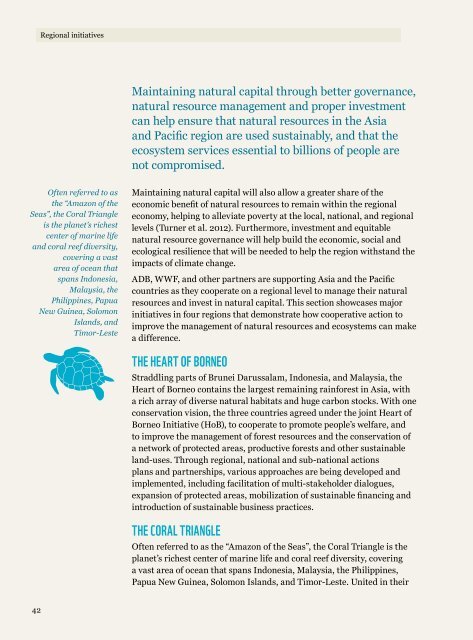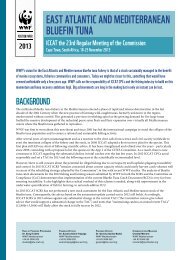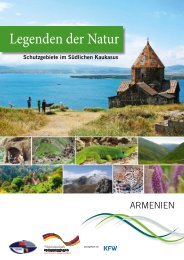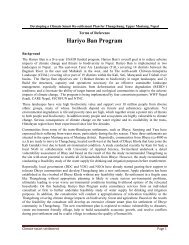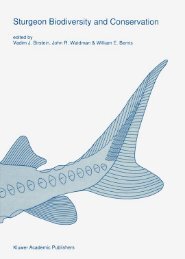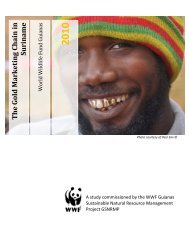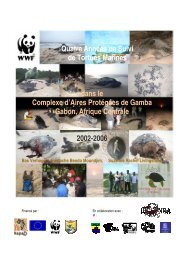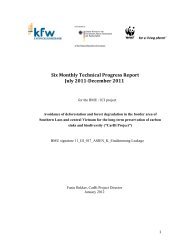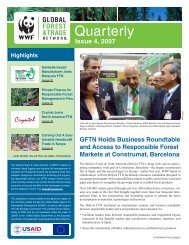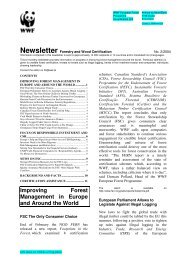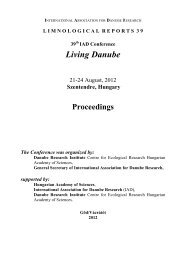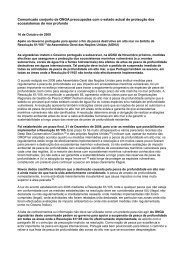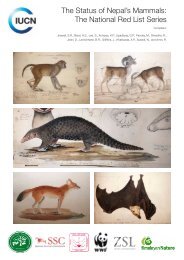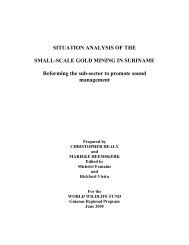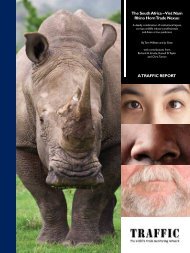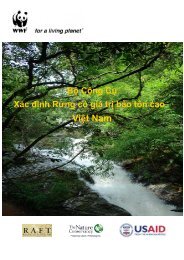Download the pdf - Global Footprint Network
Download the pdf - Global Footprint Network
Download the pdf - Global Footprint Network
Create successful ePaper yourself
Turn your PDF publications into a flip-book with our unique Google optimized e-Paper software.
42<br />
Regional initiatives<br />
Often referred to as<br />
<strong>the</strong> “Amazon of <strong>the</strong><br />
Seas”, <strong>the</strong> Coral Triangle<br />
is <strong>the</strong> planet’s richest<br />
center of marine life<br />
and coral reef diversity,<br />
covering a vast<br />
area of ocean that<br />
spans Indonesia,<br />
Malaysia, <strong>the</strong><br />
Philippines, Papua<br />
New Guinea, Solomon<br />
Islands, and<br />
Timor-Leste<br />
Maintaining natural capital through better governance,<br />
natural resource management and proper investment<br />
can help ensure that natural resources in <strong>the</strong> Asia<br />
and Pacific region are used sustainably, and that <strong>the</strong><br />
ecosystem services essential to billions of people are<br />
not compromised.<br />
Maintaining natural capital will also allow a greater share of <strong>the</strong><br />
economic benefit of natural resources to remain within <strong>the</strong> regional<br />
economy, helping to alleviate poverty at <strong>the</strong> local, national, and regional<br />
levels (Turner et al. 2012). Fur<strong>the</strong>rmore, investment and equitable<br />
natural resource governance will help build <strong>the</strong> economic, social and<br />
ecological resilience that will be needed to help <strong>the</strong> region withstand <strong>the</strong><br />
impacts of climate change.<br />
ADB, WWF, and o<strong>the</strong>r partners are supporting Asia and <strong>the</strong> Pacific<br />
countries as <strong>the</strong>y cooperate on a regional level to manage <strong>the</strong>ir natural<br />
resources and invest in natural capital. This section showcases major<br />
initiatives in four regions that demonstrate how cooperative action to<br />
improve <strong>the</strong> management of natural resources and ecosystems can make<br />
a difference.<br />
<strong>the</strong> heARt oF BoRneo<br />
Straddling parts of Brunei Darussalam, Indonesia, and Malaysia, <strong>the</strong><br />
Heart of Borneo contains <strong>the</strong> largest remaining rainforest in Asia, with<br />
a rich array of diverse natural habitats and huge carbon stocks. With one<br />
conservation vision, <strong>the</strong> three countries agreed under <strong>the</strong> joint Heart of<br />
Borneo Initiative (HoB), to cooperate to promote people’s welfare, and<br />
to improve <strong>the</strong> management of forest resources and <strong>the</strong> conservation of<br />
a network of protected areas, productive forests and o<strong>the</strong>r sustainable<br />
land-uses. Through regional, national and sub-national actions<br />
plans and partnerships, various approaches are being developed and<br />
implemented, including facilitation of multi-stakeholder dialogues,<br />
expansion of protected areas, mobilization of sustainable financing and<br />
introduction of sustainable business practices.<br />
<strong>the</strong> CoRAL tRIAngLe<br />
Often referred to as <strong>the</strong> “Amazon of <strong>the</strong> Seas”, <strong>the</strong> Coral Triangle is <strong>the</strong><br />
planet’s richest center of marine life and coral reef diversity, covering<br />
a vast area of ocean that spans Indonesia, Malaysia, <strong>the</strong> Philippines,<br />
Papua New Guinea, Solomon Islands, and Timor-Leste. United in <strong>the</strong>ir


